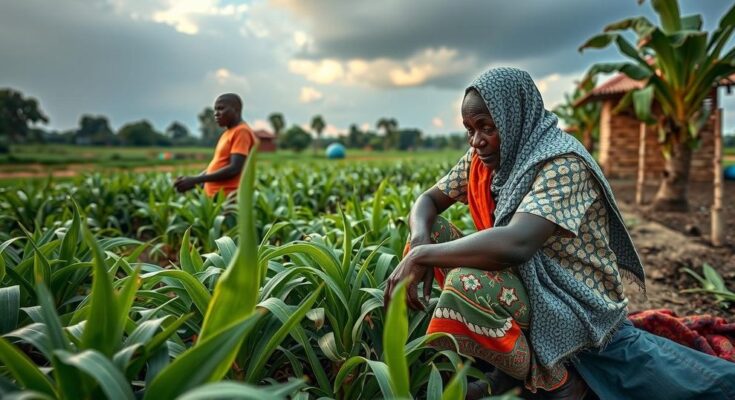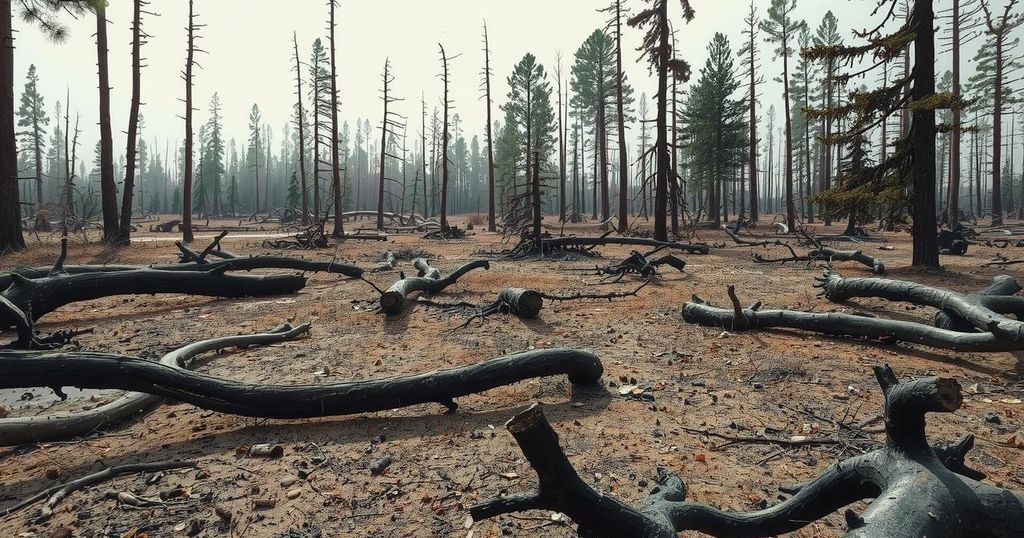In Maban County, South Sudan, refugee farmer Awad Usman struggles against climate change’s adverse effects, coping with flooding that devastates his crops. Supported by UNHCR initiatives, he has learned sustainable farming practices that have helped him achieve a good harvest this season. The agency’s efforts focus on providing resources and protective measures to ensure food security for refugees and local communities amid growing climate challenges.
In South Sudan’s Maban County, Awad Usman, a refugee farmer, faces significant challenges due to climate change and extreme weather conditions. Having fled from Sudan over a decade ago, he grows sesame and sorghum but endures the devastating impacts of heavy rainfall and periodic flooding. According to Awad, the crops were completely destroyed during the last flooding event, which left him with insufficient produce to support his family, compelling him to find additional work to meet their needs. As one of the worlds’ most climate-vulnerable nations, South Sudan has witnessed a 10 to 20 percent reduction in rainfall since the mid-1970s, while the frequency of catastrophic flooding has escalated. Over 1.4 million individuals have been affected by recent floods, leading to widespread displacement. The Food insecurity crisis is amplified in Maban, where both refugees and local communities are adversely impacted. In response to these challenges, the UN Refugee Agency (UNHCR) has implemented various initiatives to support farmers like Awad, who lack essential resources to adapt effectively. UNHCR has secured farmland for refugees, provided cash assistance for seeds and equipment, and offered training on crop diversification and sustainable farming practices. A major project has included constructing dykes that protect farmland, roads, and homes from flooding. This season, by applying the knowledge gained from UNHCR, Awad harvested a substantial yield before the expected floods. The dykes proved effective, allowing him to sustain his crops amidst extreme weather conditions. With his family contributing through various farming activities, Awad maintains a spirit of positivity as he sings to his growing crops, symbolizing resilience and hope.
Climate change presents an increasingly severe threat to agricultural productivity in South Sudan, particularly for those who have already been displaced by conflict. The region has seen both a reduction in rainfall and an increase in flooding, severely affecting the livelihoods of farmers, especially refugees. The displacing of communities due to climate-related disasters necessitates urgent intervention to enhance food security and improve agricultural resilience. The UNHCR’s involvement has become critical, offering support and training to help these vulnerable populations adapt to changing environmental conditions.
The plight of refugee farmers in South Sudan, exemplified by Awad Usman, underscores the severe impacts of climate change on vulnerable populations. Through focused intervention by the UNHCR, including land access, funding, and climate-resilient training, there is a concerted effort to enhance the livelihoods of those affected. The construction of protective infrastructure also plays a crucial role in safeguarding against extreme weather. Awad’s story reflects resilience and adaptability among refugees as they strive for self-sufficiency, despite the daunting challenges posed by their environmental conditions.
Original Source: www.unhcr.org




